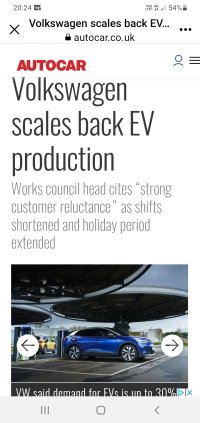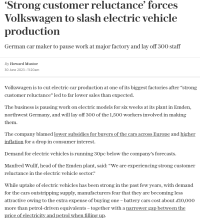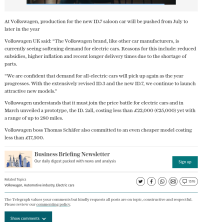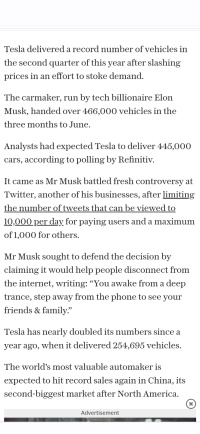To me there's a fundamental elephant in the room (which may have been mentioned in earlier pages of this thread and I've missed); currently EVs are only viable on more than an isolated basis for two reasons; the first is the advent of tax-free and NI benefit salary sacrifice car lease schemes reducing the outlay by at least 30%, the second is the "fuel" source is currently also almost tax free with just 5% VAT.
Bit of fag-packet maths here;
- 10k miles per annum driving
- 40mpg average fuel consumption
- petrol at £1.40 a litre
- £400 gross lease cost per month on an electric vehicle
- Assume a fairly humdrum EV; a 39kWh Nissan Leaf with a typical range of 145 miles
1,135 litres of fuel would have been used to fuel a normal car
This costs the end user £1,589, but of that £862 is duty/VAT
Assume 34p kWH for electricity, to it'll need 2,690 kWH, £915 cost to the end user
Assume a lower-rate tax payer, that's a further £1,464 of tax and NI savings
So the government is effectively losing £2,326 of duty per annum.
This is something that if EVs become widespread, the government is going to have to recoup (somehow). Let's be a bit cynical and say the government accepts a small dent in finances to support the transition to greener transport, so let's say they only seek to recoup 75% of that cost. That's still £1,745 extra per year. In another thread we're talking about interest rates and mortgage repayments; those numbers are dwarfed by the tax benefits enjoyed by EV car owners at the moment.
My concern is, until such time we've got a near limitless and super cheap energy supply, we're in a bit of a bubble with massive tax benefits bringing EV car ownership close to that of a "normal" car; at some point, something has to give to make up the shortfall. It's possible of course it'll be a double edged sword and the govt will apply ever higher taxation to fossil fuels but slightly less high tax to EVs, making EVs still the cheaper, or rather least very expensive, option.
A crystal ball right now would be fascinating . . .




















